Christy O'Connor: How Kieran McGeeney held his nerve to guide Armagh to glory again
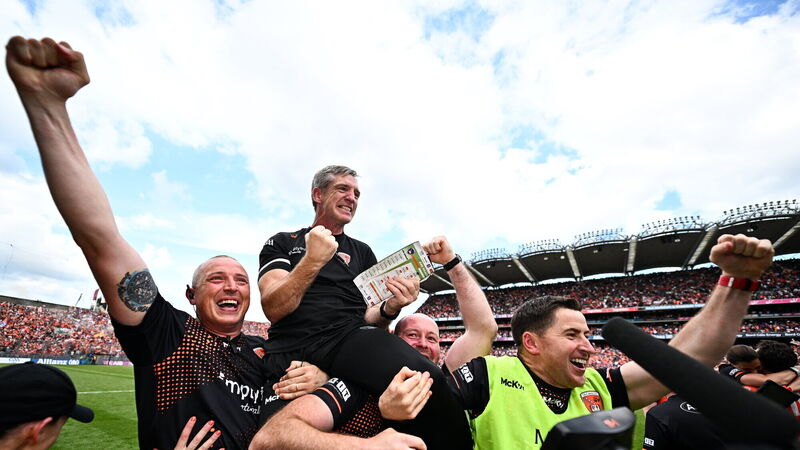
Armagh manager Kieran McGeeney is lifted by his selectors Kieran Donaghy and Ciarán McKeever at Croke Park. Picture: Harry Murphy/Sportsfile
Close to an hour after the final whistle of Sunday’s All-Ireland final, Kieran McGeeney was the last man up the steps of the Hogan Stand, standing momentarily on the podium in front of the Sam Maguire, glancing at it briefly before smiling and then hoisting the trophy over his head.
The noise from the Armagh supporters in that moment rose to a crescendo. Most of the Armagh players by that stage were heading towards their supporters on Hill 16 but the elevated noise levels forced some of them to look behind them.
They knew what was happening by then as ‘Geezer, Geezer, Geezer’ rang around Croke Park.
Before he presented the Sam Maguire to Stefan Forker, GAA President Jarlath Burns – who had played alongside McGeeney – thanked his former team-mate for what he had done for this group, for how he had stuck with them and shaped them during ten long years at the helm.
Twenty two years on from Armagh’s last All-Ireland, the symmetry was obvious. If anyone was ever going to captain Armagh to their first All-Ireland, it was going to be McGeeney. If anyone was going to manage Armagh to a second – nobody was more qualified to do so than McGeeney.
The elation on his face in the aftermath of Sunday underlined just how much McGeeney has put into this job, of how much he has emptied himself in the pursuit of trying to get Armagh back to the top of the mountain again.
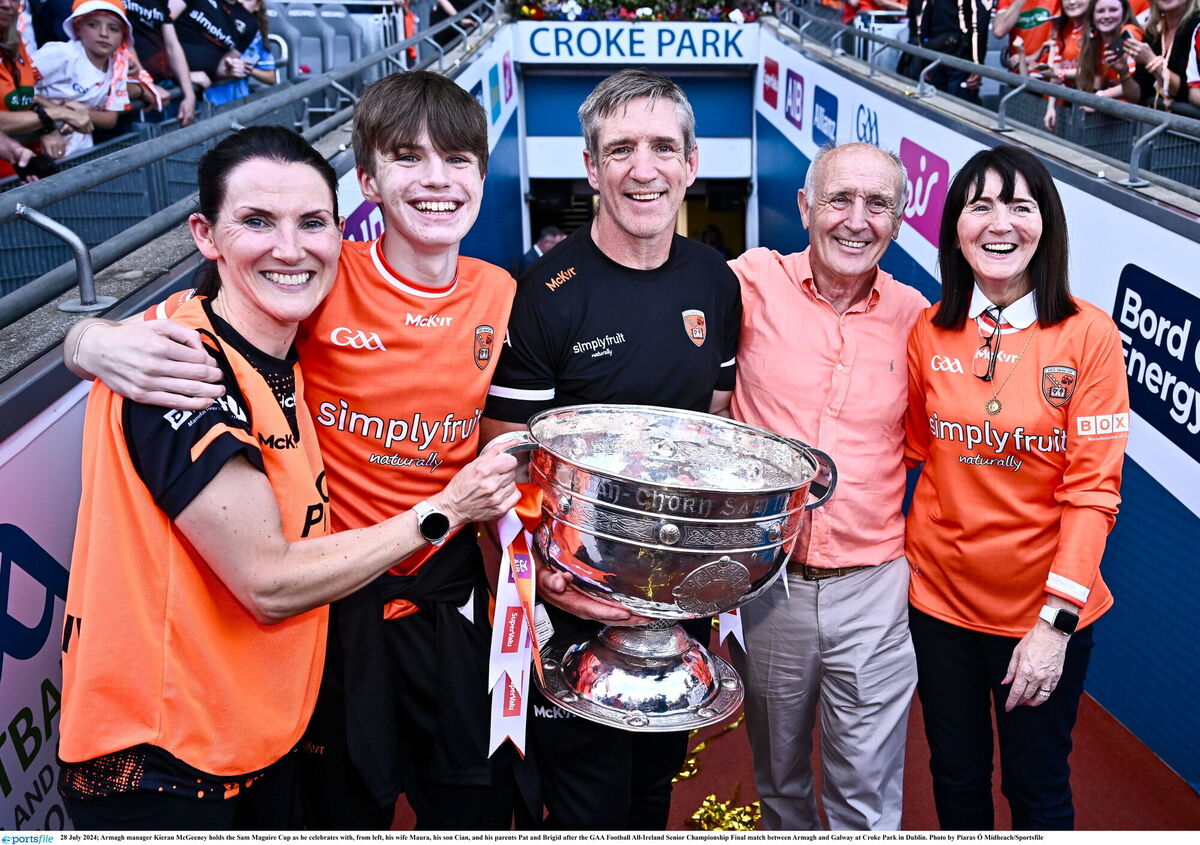
There were times when Armagh looked further away than ever from that goal under McGeeney but his relentlessness, durability and refusal to submit has always been an apt metaphor for everything he has done as a player and manager.
The one season he was not a player or manager, in 2014, McGeeney combined his coaching job with Armagh alongside his role as performance coach with the Tipperary hurlers. Séamus Callanan credited McGeeney with helping to transform his career.
The power of McGeeney’s leadership and inspirational qualities was also evident in Kildare, which he took from nowhere to within inches of an All-Ireland final appearance in two years.
After six years in the job, McGeeney left Kildare with question marks still hovering over his managerial credentials. And his first seven seasons with Armagh were an extension of that debate.
It took Armagh six years to get into Division 1 under McGeeney. They twice blew promotion from Division 3. Some of those struggles were harder to justify considering Armagh’s brilliant attacking talent.
As a player, McGeeney was tough, uncompromising, ruthless. Not every team can play in the same image, or operate with a matching personality, of their manager, but McGeeney’s ultra-professionalism as a player was bound to set demanding standards of him as a manager.
McGeeney tried everything possible during those first seven seasons as Armagh manager but he often failed to meet those self-imposed standards and expectations.
And Armagh’s horrendous record in Ulster provided the biggest rod for McGeeney’s back; in 12 games in his first six seasons, Armagh won just three.
It was a slow, long and agonising march before Armagh even got near base camp – never mind close to making progress up the mountain.
It took McGeeney five years to win a game in Ulster but his status as the spiritual leader of Armagh football inflated hope as soon as Armagh appeared to be going somewhere again. Expectations though, have often been much greater than Armagh’s track record.
For years, Armagh’s progress followed a jagged graph, where big wins were often followed by sometimes inexplicable losses. They became far more consistent in recent seasons but delivering on those heightened expectations was still a recurring issue.
It was even more agonising again when Armagh lost the Ulster final to Donegal on penalties six weeks later. Penalties are always a lottery but another defeat (their fourth in a shootout in three years) condemned Armagh to another period of deep soul-searching.
Incrementally though, Armagh were improving. In their first two penalty shoot-outs, against Galway in the 2022 All-Ireland final, and against Derry in the 2023 Ulster final, Armagh scored just two from seven.
Yet against Monaghan last June, Armagh nailed eight of their first nine penalties before cruelly missing their 10th. In the Ulster final in May, Armagh nailed their first five penalties before Shane McParlan saw his effort saved by Shaun Patton in sudden death.
It was another heartbreaking loss for Armagh but they knew what it was like to be cut open – and to be able to cope with the blood loss. The question this time around was how much would another defeat wound Armagh? Were they in danger of bleeding out?
No. After beating Westmeath and Derry in the round robin, another draw – this time with Galway in June, when it secured their passage straight through to an All-Ireland quarter-final – completely changed the narrative around McGeeney’s team.
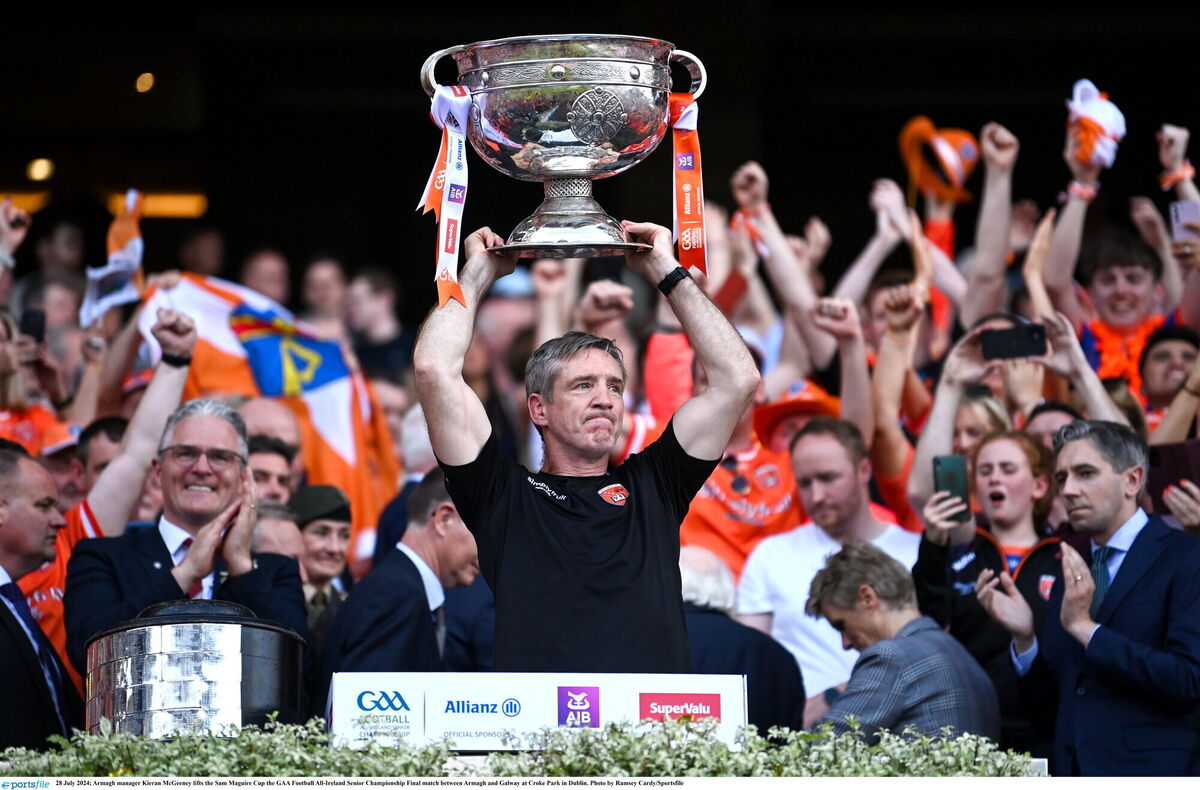
If anything, it weaponised it.
When the heat came on against Kerry, Armagh took comfort and confidence from the hellish places they’d been to, but which Kerry hadn’t. Galway had suffered too in recent years but, in a game that was always likely to go to the wire on Sunday, Armagh’s sufferance and pain provided enough fuel in the tank to finally drive them over the line.
And it was fitting that McGeeney was the one at the wheel.
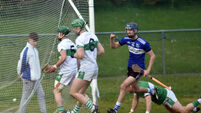
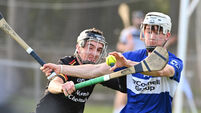

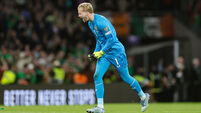


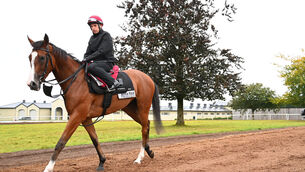



 App?
App?







